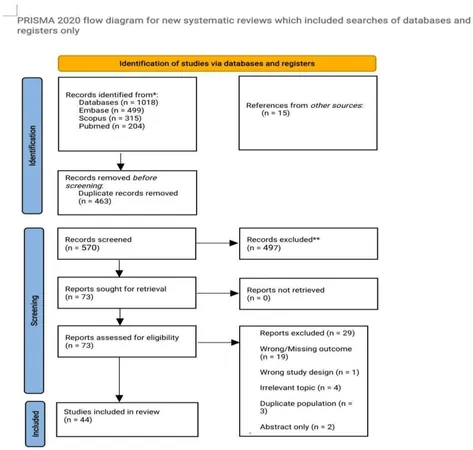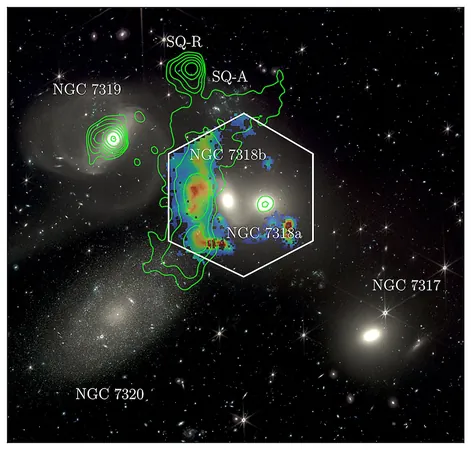
Shocking Link Between Psoriasis and Heart Disease Unveiled: What You Need to Know!
2024-11-23
Author: Siti
Recent Research Uncovers Startling Connection
Recent research has uncovered a startling connection between the severity of psoriasis and systemic inflammation, with significant implications for cardiovascular health. Led by Dr. Axel Svedbom from the Karolinska Institutet in Stockholm, this groundbreaking analysis links higher levels of inflammation—measured through a specific biomarker, GlycA—to an increased risk of cardiovascular disease (CVD) in psoriasis patients.
Psoriasis, a chronic skin condition characterized by red, itchy patches, has long been associated with various health issues, and this latest study reinforces the notion that those afflicted might be at greater risk for heart-related problems due to a shared set of risk factors.
The key hypothesis presented by Svedbom and his team posits that inflammation signals from psoriasis-affected skin can shift into the bloodstream, thereby causing systemic inflammation. This process, researchers argue, may lead to the dangerous buildup of coronary plaque, creating a critical need for further investigation into these connections.
How the Study Was Conducted
The study analyzed data from two major cohorts: the Psoriasis Atherosclerosis and Cardiometabolic Disease Initiative (PACI) in the U.S. and the Stockholm Psoriasis Cohort (SPC) in Sweden. Over a span from January 2013 to February 2022, the PACI investigated the severity of atherosclerosis among psoriasis patients, while the SPC looked into newly diagnosed cases from 2000 to 2005.
The researchers evaluated systemic inflammation using the GlycA biomarker and determined psoriasis severity through the widely-used Psoriasis Area and Severity Index (PASI). They focused on individuals with scores in both lower and higher ranges, revealing a complex relationship between inflammation and cardiovascular risk.
Eye-Opening Findings
The analysis included 260 participants from PACI, predominantly male with a median age of 51, and 509 participants from SPC, with a median age of 43. The results were telling: higher PASI scores correlated strongly with elevated GlycA levels and increased risk of cardiovascular disease.
Astoundingly, the study estimated that for every unit increase in PASI score, there was a notable increase in both noncalcified coronary burden and cardiovascular events. Specifically, the direct effect on coronary plaque was estimated at 0.94, while cardiovascular event odds ratios ranged from 1.23 to 1.16, highlighting the significant impact psoriasis severity may have.
What This Means for Patients
The researchers concluded that inflammation, as determined by GlycA levels, might indeed mediate the association between severe psoriasis and an increased risk of heart disease. This discovery opens new avenues for both understanding and managing psoriasis.
Dr. Svedbom suggested that future studies could explore whether effectively controlling skin disease might reduce the risks of both subclinical atherosclerosis and major cardiovascular events in these patients.
As awareness grows about the hidden dangers of psoriasis, it's crucial for dermatologists and cardiologists to collaborate closely, ensuring comprehensive care for patients. If you have psoriasis, staying informed about these findings can empower you to take proactive steps towards heart health!
Stay tuned for more updates on this evolving field of research!





 Brasil (PT)
Brasil (PT)
 Canada (EN)
Canada (EN)
 Chile (ES)
Chile (ES)
 España (ES)
España (ES)
 France (FR)
France (FR)
 Hong Kong (EN)
Hong Kong (EN)
 Italia (IT)
Italia (IT)
 日本 (JA)
日本 (JA)
 Magyarország (HU)
Magyarország (HU)
 Norge (NO)
Norge (NO)
 Polska (PL)
Polska (PL)
 Schweiz (DE)
Schweiz (DE)
 Singapore (EN)
Singapore (EN)
 Sverige (SV)
Sverige (SV)
 Suomi (FI)
Suomi (FI)
 Türkiye (TR)
Türkiye (TR)